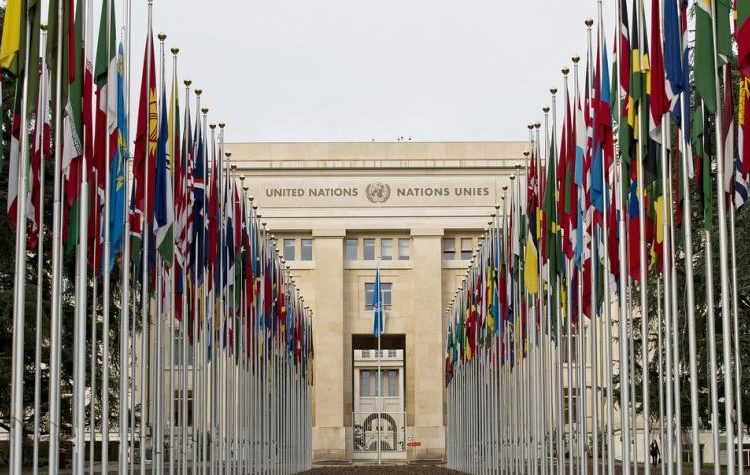Nordic Monitor
In its response to a UN letter on the involvement of the Turkish government in recruiting Syrian fighters to take part in military operations in Nagorno-Karabakh, Turkey claimed that videos showing mercenaries in the region were fake.
Turkey’s diplomatic communication does not mention international media reports releasing interviews with Syrians who joined the fighting between Azerbaijan and Armenia and alleges that images of the members of the Syrian National Army were recorded and circulated by Armenia.
In November UN rapporteurs had sent a joint letter to the Turkish government seeking further information on its role and “the circumstances surrounding the recruitment, financing, transportation and deployment of Syrian fighters to participate in the hostilities in the Nagorno-Karabakh conflict.”
They noted that the alleged use of Syrian fighters by Turkey to take part in hostilities in third states negatively impacts peace and security in the region. “The systematic and continuous recruitment of these fighters for financial compensation is particularly worrisome,” the letter stressed.
The UN expressed its concern over the reported role of Turkish private military and security companies in facilitating the recruitment of Syrian fighters in alleged coordination with Turkish authorities.
The Turkish government’s response to the UN letter was conveyed by the country’s permanent mission to the UN office in Geneva, via a note verbale dated January 21, 2021. “The press release by the Working Group on the use of mercenaries based on black propaganda products of fake images and fabricated news has undermined the credibility of the UN Special Procedures Mechanism,” the Turkish government stated.
Note verbale and information note conveyed by the permanent Turkish representative to the UN office in Geneva:
The joint letter was sent by the UN’s Chris Kwaja, chair-rapporteur of the working group on the use of mercenaries as a means of violating human rights and impeding the exercise of the right of peoples to self- determination; Irene Khan, special rapporteur on the promotion and protection of the right to freedom of opinion and expression; and Nils Melzer, special rapporteur on torture and other cruel, inhuman or degrading treatment or punishment.
UN officials urged the Turkish government to provide information on “the command and control structure over the Syrian fighters deployed in support of Azerbaijani’ [sic] armed forces, including any measures in place to hold these fighters accountable for violations of international humanitarian law and international human rights law, including specific examples.”
According to the UN rapporteurs, the deployment of Syrians contributed to the rapid escalation and intensification of hostilities and resulted civilian harm and suffering. “During armed conflicts, mercenaries and mercenary-related actors are obliged, as are all other members of State armed forces or non-State armed groups party to a conflict, to respect the applicable rules of international humanitarian law,” they said.
According to reports received by the UN, members of the Hamza Division, Sultan Murad Division, Al-Amshat Faction and the Sultan Sliman Shah Brigade have allegedly agreed to be transferred to Azerbaijan in return for monetary compensation. “Turkey allegedly contracts private military and security companies to facilitate the preparation of official and contractual documentation for the fighters, apparently in coordination with the Turkish security services,” the UN letter said.
Referring to a previous UN letter about the role of Turkey in deploying and financing Syrian fighters to take part in the conflict in Libya, the rapporteurs took note of the Turkish government’s reply, dated September 17, 2020, and said it did not substantively addresse the allegations raised.
Joint UN letter dated November 6, 2020:
In June, the UN sent a letter to the Turkish government revealing how Turkey effectively recruited Syrian fighters from several Syrian armed groups to take part in military operations in Tripoli in support of the Government of National Accord (GNA).
In that communication, SADAT and other possible Turkish contractors were also accused by UN agencies of recruiting children under 18 years of age to take part in the armed conflict in Libya. “Not only have these [Turkish] companies facilitated the recruitment and deployment of mercenaries from Syria to Libya, but, according to the available information, they have also contributed to the recruitment of children under 18 years of age to take part in an armed conflict,” the letter said.
“Turkish authorities allegedly contracted private military and security companies to facilitate the selection as well as the preparation of official and contractual documentation for the fighters, apparently in coordination with the Turkish security services. One of the companies cited in this context was Sadat International Defence Consultancy [SADAT],” the letter underlined.
SADAT, which is fully funded and supported by the Turkish government, is owned by retired Gen. Gen. Adnan Tanrıverdi, the former chief military aide to President Recep Tayyip Erdoğan. Nordic Monitor has published several reports on SADAT’s activities and goals in Turkey and abroad.
Tanrıverdi announced in December 2019 that SADAT had been working to pave the way for the long-awaited mahdi (prophesied redeemer of Islam), for whom the entire Muslim world is waiting.
Opposition Turkish lawmakers had asked the government about the alleged role of SADAT in training Islamic State in Iraq and Syria (ISIS) and Syrian al-Qaeda group Jabhat al-Nusrah (al-Nusrah Front) fighters and alleged close relations between Turkish intelligence agency MİT and SADAT.












